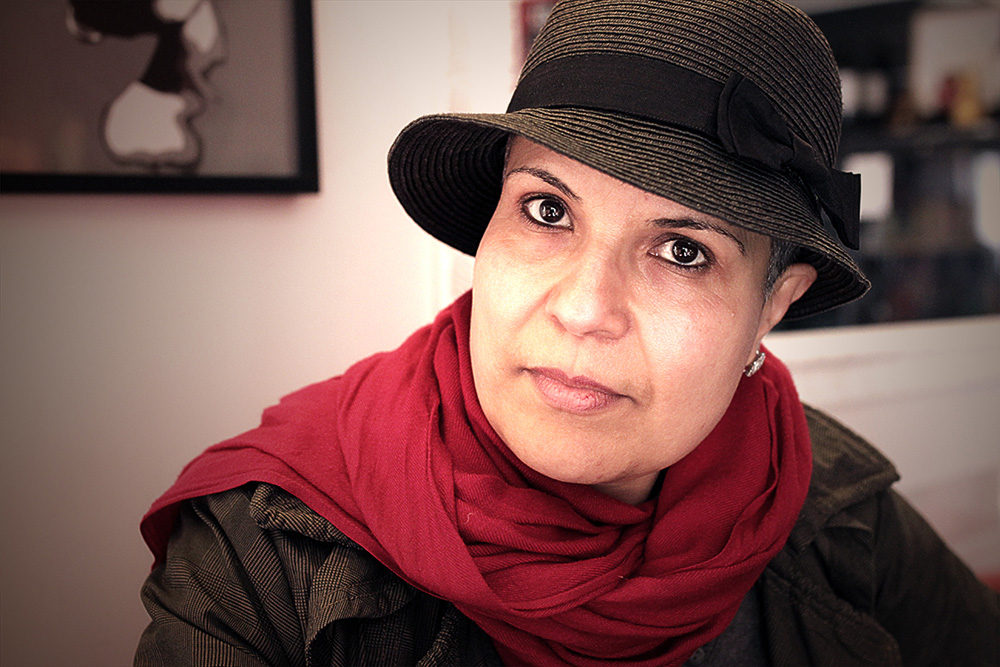
While writing “The Slave Pens” Najwa Binshatwan proved how writers can produce some of their best work under duress. The Libyan academic and novelist wrote the book fearing financial uncertainty, feeling isolated and without a real place to call home. However, she earned being one of the six finalists who were cherry-picked to win the International Prize for Arabic Fiction, the leading literary prize in the Arab world. She’s made it in the international prize circuit before by being listed as one of the ‘Beirut39,’ the 39 top Arab writers under 40, in 2009. She has also won an award in Sudan.
The author, who has two other novels and short stories to her name, talks about what went into writing “The Slave Pens,” a novel about a taboo relationship, which lifts the lid on how gloomy things were for slaves in Libya.
How did it feel to be shortlisted for the International Prize for Arabic Fiction?
I was delighted to be long and shortlisted, meaning more publicity for my novel and my name. I gained more readers and publishers’ interest.
You were the only female on the list, did that make it even more special?
I felt proud to have come this far and being the only female on the list. Of course, the final decision was simply taken based on the best novel.

“The Slave Pens” uncovers the history of slavery in Libya. What propelled you to write about it?
Creativity is what generally propels me to write. I do not subject myself to any specific topic or era pressures. Writing is my passion, and I follow my instinct. During the long period it took me to write “The Slave Pens,” I was also penning other works.
So how long did it actually take you to research and write?
Completing and revising the final published version took me about a year. More importantly, I think, is to know that the idea to write “The Slave Pens” came to me in 2006, when I intended to write it as a short story but never finished it. Later on, I came across an old photograph of slaves’ pens, and I started contemplating a lot, until I decided to start writing again. The further I uncovered the history of slavery in Libya, the more grief I felt and the more I wanted to write.
Which character in the book did you find the most fascinating to develop?
If I look back at the photograph that inspired me to write, I would say it is the image of that child, so young and small with unclear features. She was the one who lead me to details and was the real inspiration for this novel. She narrated the story and got transformed into Atiga Mohamed Ben Shetwan in the novel.
You finished writing it while living in Rome and Palermo, how did that shape the book?
It was a winter day in Rome in 2015 when I decided to search for “The Slave Pens” file on my computer. That was the same day the owner of the attic I was renting out asked me to leave. I had refused to write her Ph.D. thesis for her, and when I further declined her monetary offer I was told to pack and leave. I had enjoyed the quiet life in the attic, where I could write undisturbed, but I suddenly found myself in the noisy city with nowhere to go.
I left Rome and headed to Palermo, where I was promised a work opportunity, and where I wanted to write in my free time. But as the work promises quickly evaporated, I found myself free and anticipating the doom of poverty. All I had now was time and the uncertainty of everything else. I rented a small room in an apartment with four other women. Life quickly became suffocating with them, and I retreated to the kitchen balcony to breathe and write. The women told me the balcony was not mine alone, and this forced me to dive even further into my writing and to shut off the world around me.
Apart from the sad and harrowing topic, what was the most challenging part about writing the book?
To construct and write this novel was my biggest challenge. I wanted to keep the readers interested throughout the novel, not allowing them to wonder far. I wanted to create joy from pain and vice versa, and I think I succeeded. Some readers even expressed their regret that I didn’t further extend the novel.

Was it harder than writing your two other books, “The Horses' Hair” (2007) and “Orange Content” (2008)?
“The Slave Pens” was written under conditions totally different from when I wrote my other novels. I was on the move, without a place to call mine, friends, work, money or prospects for the future. I also had health issues, I constantly asked myself what was going to happen and where I was going to end up. “The Slave Pens” was written in exceptional circumstances, like a last minute goal that changed the equation and the final result.
What advice do you have for an inspiring author who wants to try creative writing?
My advice to any creative writers is to follow their instincts and after listening to all the advice given to them to put it all aside and forget about it. They should write only what they feel and believe in. They must also stay true to and believe in themselves, not heeding people’s reactions to their work if they want them to be otherwise.
Do you have a certain routine that helps to get the creative juices flowing?
My thoughts are my food and books are my capital. I think best in the first hour of the day while still in bed or when I go on walks by myself. For me solitude is very productive and I like it. Being in crowds makes me nervous very quickly.

















